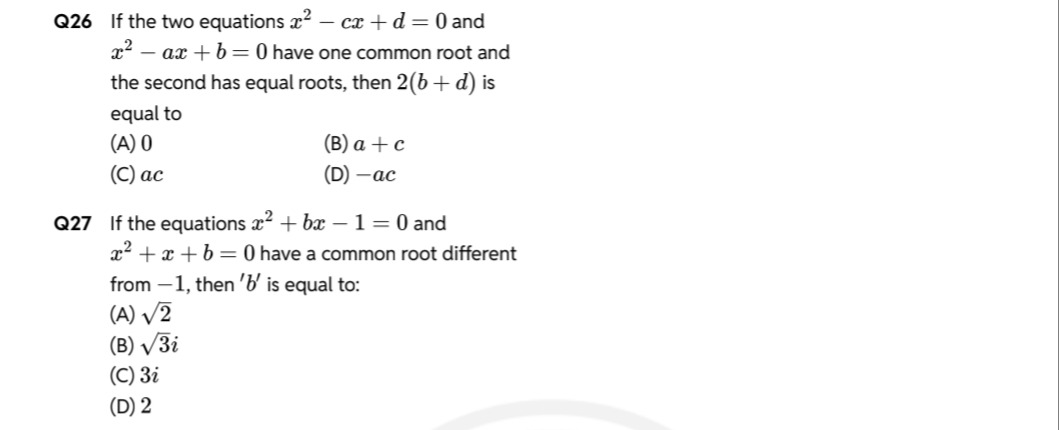Question
Question: If the two equations $x^2-cx+d=0$ and $x^2-ax+b=0$ have one common root and the second has equal roo...
If the two equations x2−cx+d=0 and x2−ax+b=0 have one common root and the second has equal roots, then 2(b + d) is equal to

A
0
B
a + c
C
ac
D
-ac
Answer
ac
Explanation
Solution
The second equation having equal roots implies its discriminant is zero, leading to a2=4b. The root of this equation is a/2. Since this is the common root, a/2 must satisfy the first equation. Substituting x=a/2 into the first equation and using a2=4b, we derive 2(b+d)=ac.
